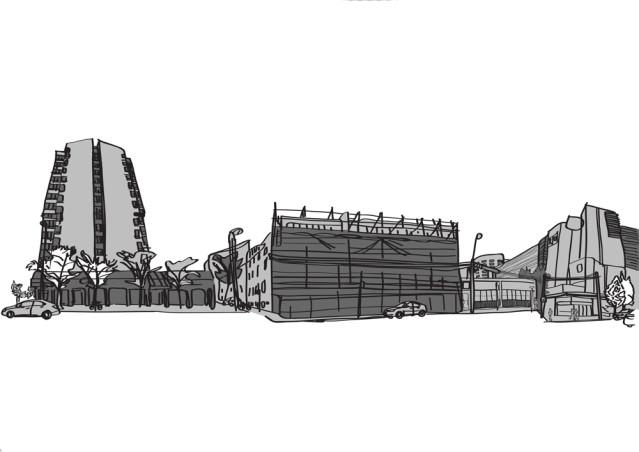By Lee Richardson
Religion is alive and well on campus.
Despite agnosticism, atheism, humanism and other non-belief variables being rife among young adults, there is visible proof that religion continues to be of importance to many Ryerson students.
Such proof is not hard to see – posters promoting religion-related events and discussions are a constant on bulletin boards across campus, and a trip to the lower floor of the student centre provides a glimpse into the number of beliefs requiring space on campus. These student groups, supported by the Ryerson Students’ Union (RSU), are the focus of this week’s feature by contributor Luc Rinaldi. While founded in Luc’s personal feelings about religion, the piece highlights some of the faithbased groups, in the end resulting in a piece that shows that religion is still a topic worthy of discussion on campus.
It’s also a topic worth voting on.
The establishment of a second multifaith space was one of the key motions at the 2011 RSU semi-annual general meeting. It passed easily, with the second space set to be at 111 Gerrard St. East – a former copy centre and study space that, after its abandonment, was once planned to house the faculty of health sciences.
This development offers a question that should be raised – should universities be providing faith-based spaces at all? I would comfortably say that all religion-based student groups should be disbanded, for the reason that religious ideologies go against the basic RSU mandate that aims to provide spatial inclusivity to all students, regardless of their beliefs.
However, I can understand why the groups are established and maintained – to act as networking and support tools for those students who depend on religion for their own comfort and guidance.
Dedicated spaces set up purely to accommodate only those students with spiritual beliefs, however, are a different beast altogether. Such spaces impede the idea that all space on university is available for all students, with a certain area in a building dedicated to inclusivity given priority to theists and the actively religious.
In a place such as Toronto – recognized as one of the most multicultural cities in the world – there are many available organizations and societies that provide religious space. Of course the ability to express personal beliefs in a safe space is to be respected and appreciated.
However, for a university – understood to be a secular institution – or a student union, to take away part of a campus and dedicate it to only religious activities hinders inclusivity. If an area for religious expression is required, it could be beneficial if it were opened up into an area for reflection and discussion that would represent learning – the main aspect of attending university.
Until then, a space that defines faith as religion cannot be truly multi-faith.












Leave a Reply